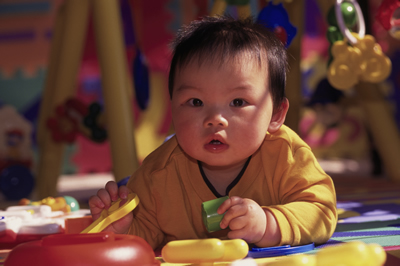Greetings!
 | | The CCCEH study is the first to examine prenatal phthalate exposure and the prevalence of mental, motor and behavioral problems in children who are in the preschool years. |
Over the past 10 years, WE ACT has partnered with researchers at the Columbia Center for Children's Environmental Health (CCCEH), Mailman School of Public Health, to disseminate findings from their environmental health research to the communities we serve. As such, today we bring you news of a recently published study by our research partners that heightens concerns over the potential health effects on children of a widely used group of endocrine system disrupting chemicals known as phthalates. Phthalates are chemicals used to soften plastics in many consumer products, including children's toys, plastic containers and household building materials. Phthalates can also be found in personal care products like perfumes and shampoos. Their ability to seep out of these products, cross the placenta, and expose developing children to pollution within the womb has resulted in frequent negative health impacts. Recent studies of school-age children have provided preliminary links between prenatal exposure to phthalates and developmental problems. The CCCEH study is the first to examine prenatal phthalate exposure and the prevalence of mental, motor and behavioral problems in children who are in the preschool years. The research paper, published on September 6th in "Environmental Health Perspectives," adds to rising concerns about the widespread use of phthalates in consumer products, and the risks associated with exposures to phthalates during pregnancy. , WE ACT is working with other environmental activists in New York State (as part of the JustGreen Partnership) and around the country to bring about chemical policy reform. Our goal is to eliminate exposure to toxic chemicals like phthalates. In the meantime, until we accomplish that goal, we are pleased to offer you the following tips that, if observed, could protect you and your family members from further exposure to phthalates: 1.Use fragrance-free personal care products. Try to avoid labels with the abbreviations: DBP, DEP, DEHP, BzBP, DMP, or the word "fragrance." 2.Choose plastics with the recycling codes 1, 2 or 5, and avoid recycling codes 3, 4, 6, and 7. 3.Try toys made from wood, cotton or wool. 4.Use cloth shower curtains. I hope this information is helpful to you, and I thank you for supporting us and being a part of the WE ACT family. Together, we can make exposure to toxic chemicals like phthalates a thing of the past. Sincerely, Peggy Peggy M. Shepard Executive Director |